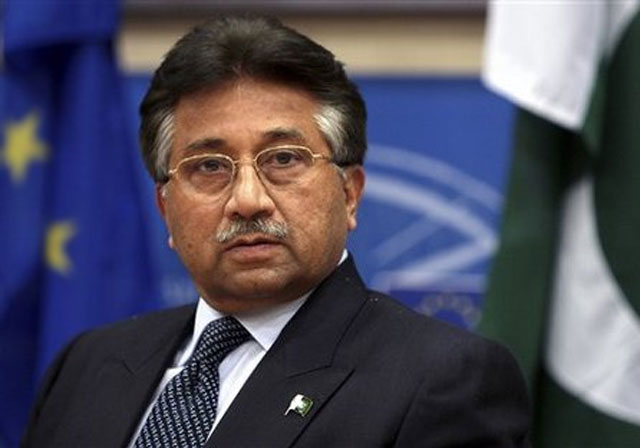By Staff Reporter
ISLAMABAD: The Supreme Court of Pakistan on Wednesday upheld a special court’s verdict that sentenced former military ruler Pervez Musharraf to death for high treason, dismissing an appeal by his supporters who said the trial was unconstitutional and politically motivated.
Musharraf, who died in exile in Dubai last year, was the first army chief and former president convicted of treason in Pakistan’s history by the country’s top court, where the powerful military has often intervened in politics and toppled civilian governments in coups.
The general, who seized power in a 1999 coup and ruled until 2008, was convicted and sentenced to death in absentia by a special court in 2019 for suspending the constitution and imposing emergency rule in 2007, a move seen as an attempt to extend his rule.
However, in 2020, the Lahore High Court overturned the conviction and sentence, declaring them unconstitutional and invalid and that Musharraf was denied a fair trial. The court also annulled the legal framework under which the special court was established, and the charges were filed.
Several lawyers challenged the Lahore High Court’s decision in the Supreme Court, arguing that it was based on flawed reasoning and violated the principle of supremacy of the constitution.
On Wednesday, a four-judge bench of the Supreme Court, headed by Chief Justice Qazi Faez Isa, dismissed the appeals and upheld the special court’s verdict, saying that the Lahore High Court had no jurisdiction to interfere in the matter.
The Supreme Court, in a unanimous decision, said that the Lahore High Court had erred in overturning the special court’s verdict in 2020 and that Musharraf’s actions amounted to a “grave and heinous” crime against the constitution and the people of Pakistan.
“The impugned passed on January 13, 2020, by the Lahore High Court […] is not sustainable and accordingly set aside,” Justice Isa said in a short verdict.
The bench also noted that Musharraf’s legal heirs could not be contacted despite attempts to do so.
The ruling was welcomed by the Pakistan Bar Council, the country’s top legal body, which had challenged the Lahore High Court’s order because it had no jurisdiction to interfere in the special court’s proceedings.
“The whole legal community has welcomed this historic judgment and also demanded from the federal government to initiate the case under Article 6 against delinquents and those responsible, who violated Article 5 of the Constitution of Pakistan,” the council said in a statement.
Musharraf, who was 79 when he died from a prolonged illness in Dubai, ousted then Prime Minister Nawaz Sharif in a bloodless coup in 1999. Sharif had appointed him as army chief a year earlier.
He ruled as a military dictator until 2001 when he became president after a controversial referendum. He stepped down as army chief in 2007 and sought a second term as president, but faced a backlash from the judiciary, the opposition, and civil society groups.
The military ruler declared a state of emergency and sacked dozens of judges, including the then chief justice, triggering a nationwide movement for the restoration of democracy and the rule of law.
Musharraf resigned as president in 2008 under the threat of impeachment and left the country in 2009. He returned in 2013 to contest the general elections but was barred from running for office and faced multiple cases, including murder, treason, and terrorism. He was granted bail and allowed to travel abroad for medical treatment in 2016 and remained in Dubai until his death.
Copyright © 2021 Independent Pakistan | All rights reserved




